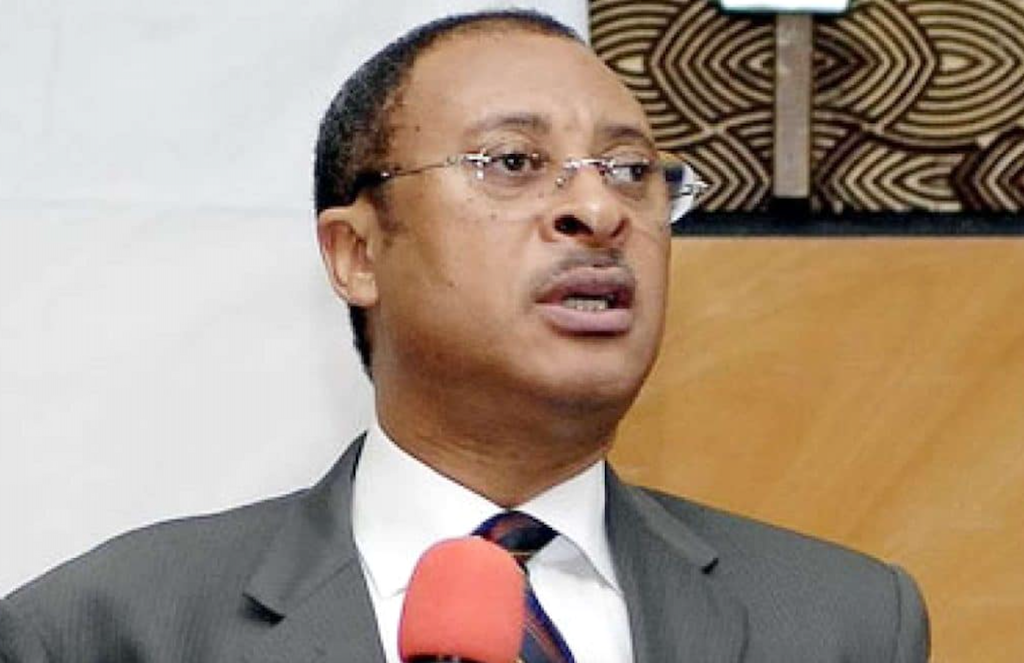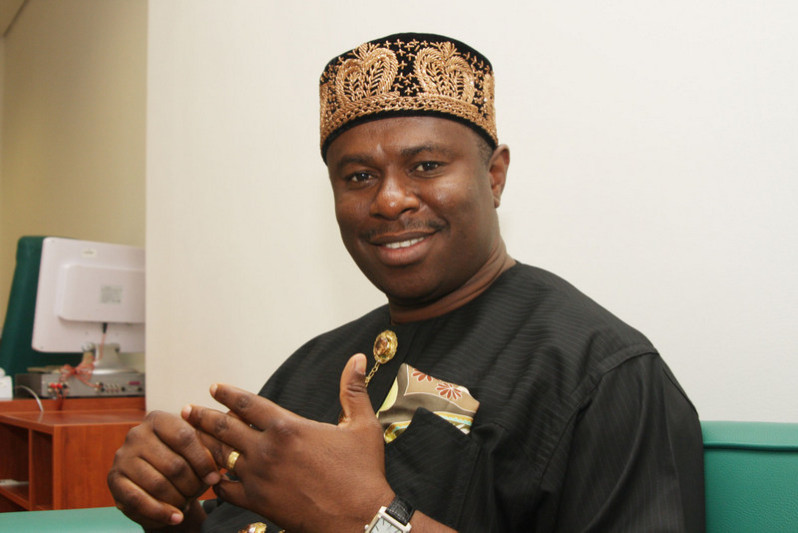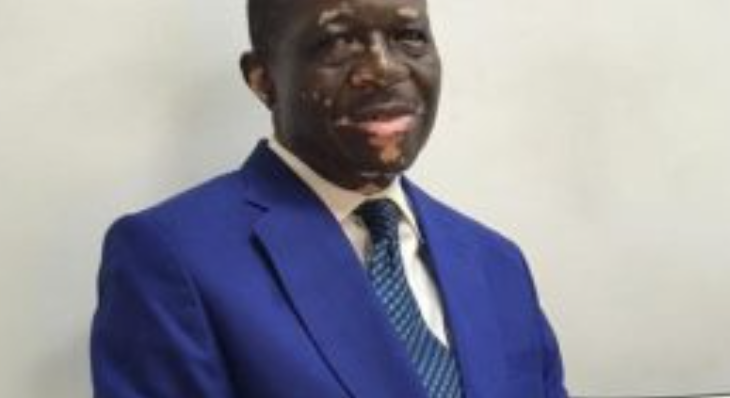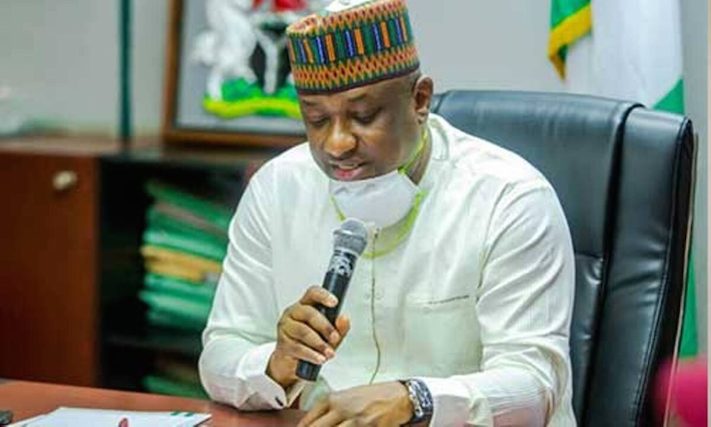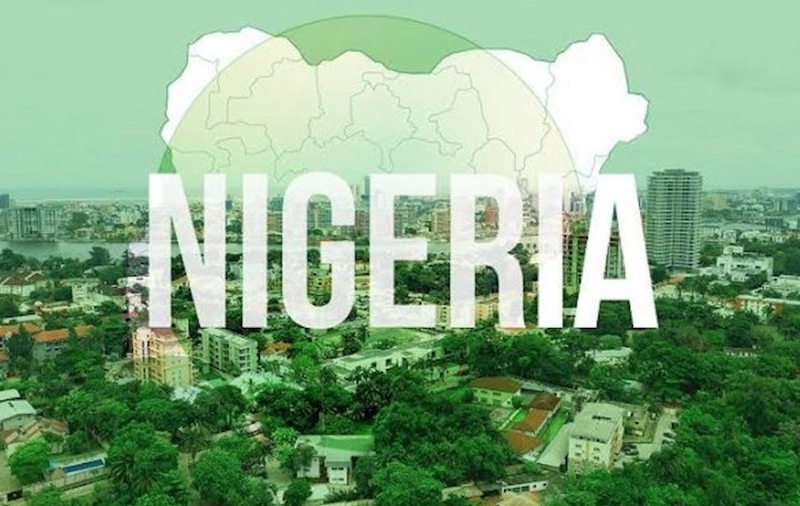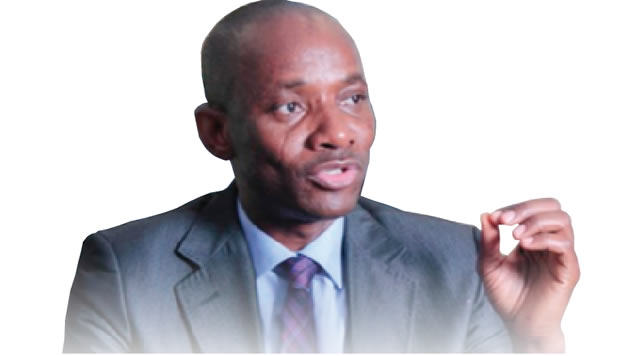By Pat Utomi
Dakuku Peterside’s piece: “How Democracy Crumbles – the Nigerian case,” is a very valuable piece of column writing. It strives to capture and root in Nigerian context a growing tradition of scholarship and Public Commentary given seminal attention by two books of similar titles : “How Democracy Ends,” by Cambridge university Professor David Runciman, and “How Democracies Die” by Harvard Professors Steven Levitsky and Daniel Ziblatt. They showcase the need for vigilance in a world in which democracy was largely embraced after the demise of Hitler, with glitches here and there, like in Portugal, Greece and Argentina, before the spate of coups in Africa in the season of Afropessimism.
Dakuku shows how electoral fraud in the 2023 elections and the capture of INEC officials and possibly the Judiciary by politicians, is castrating democracy in Nigeria and pushing it to the edge of the cliff.
The article managed to shake me off reluctance to put pen to paper on the biggest challenge confronting Nigeria, the foretold death of its ailing democracy.
I have responded to interviewers questions on the matter but had held back on contributing to the Thought Leadership I have called for because I did not want it to get mixed up in partisan barbs, mindless incivility, and propaganda terrorism that would have shocked Jacques Elul who wrote the Book on Propaganda. The Joseph Goebbels wannabes thrown up by the last elections, early warning signs of advancing fascism, have been waxing stronger in the scramble for counter narratives.
With Dr Dakuku Peterside, who is an active partisan politician, elevating the subject and discussing as an intellectual I found it compelling to bring to the market place of ideas, on this matter of existential crisis proportions, some insights that could lift the public sphere to a place of rational public conversation. That place, in which Juergen Habermas sees the intersection of Democracy and Modernity, is domain in which the fight to save Nigeria’s democracy needs to be fought with the great urgency of now.
As Peterside points out, the trouble with Democracy is a growing cancer around the world but in Africa it is grave, and much worse, in Nigeria. Peterside points to a few of the trouble spots in the world from Turkey to Hungary and Venezuela. But even the United Stattes has struggled with its conservative excess and Europe with ultra nationalists and populists, in recent times.
As the horror of a Sudan being consumed by nihilist rage stares down at us the time to show evidence to Nigerian politicians who will grab power and run, with little thought for the consequences , lives of innocents, is now. This mess can consume us all just for not standing up to a few who do not share our values as evidence from their antecedents show.
This now – now imperative cannot be sacrificed at the altar of skirting around truth for fear that it stirs the hornet’s nest and may trigger the army of uninformed media attack dogs adding more poison to the already toxic state of the public sphere.
Wisdom suggests though that not seeking truth may push the polity further towards the anarchy which Robert Kaplan predicted in the book “The Coming Anarchy” about the time our new democracy’s birth certificate was being issued 24 years ago.
So I seek light for truth here knowing , as George Orwell wrote many years ago, that ‘in a world of universal deceit telling the truth is a revolutionary art’.
A revolution is desperately needed to salvage Nigeria from the grave present danger of the demise of its democracy and a downward spiral into anarchy.
But how come the big men of politics who create these dangers by their actions and pronouncements cannot see eschatological forebodings of what they are doing.
Is it because they lack patriotism. Perhaps not. Sometimes the prisms through which they see the world, tinted by ambition and perceived benefits of state capture blinds them to truth. This is compounded by weak institutions that fail to punish those who erred yesterday elevating impunity to the status of a chieftaincy title.
As the British theologian James Lesslie Newbigin suggests ‘ a person who wields power cannot see truth; that is the privilege of the powerless’. But those worthy of the power they search for would, in my view, prepare themselves to see through these blinders and find meaning in this critic of extant crises of being, for the Nigerian state.
I should actually worry less that those I called the complicit middle in my last book: “Why Not – Citizenship, State Capture, Creeping Fascism and the Criminal Hijack of politics in Nigeria,” who urge moving on, at every wrong turn in the polity, will express exasperation and ask we just manage things’.
Most times this is because of their fear of truth and hypocrisy of purpose. Still this established culture has often failed to halt the truth which Arthur Schopenhauer suggests passes through three phases. In the first stage it is ridiculed, in the second it is violently opposed and in the third it is accepted as being self evident.
I often shudder when I ask people to go back and read my columns and watch my television commentaries from many years ago, where they will find that I predicted where Nigeria is today and it’s biggest problems a good decade or more before they added to our misery index measure. That came simply by reading trends that policy and good leadership could have caused us to eradicate or circumnavigate. But leadership which sets the tone of culture has been in poor supply in Nigeria.
So where is the truth in the crises that threaten Nigeria today. Some may be driven by attitude to who were pronounced winners.
Involved as I have been that has not much affected my bearing. For me it was essentially about public confidence in INEC and their living up to promise so that the process would confer legitimacy on the elected.
Had something as simple as the BVAS working seamlessly and uploading to the IREV and Sunshine being abundant being the case, would have quickly congratulated the winner but the Mahmoud Yakubu INEC snatched defeat from the jaws of triumph . So when reality veered from promise and no explanations came forth quickly to allay fears, motives were quickly ascribed to the stoic arrogance of the INEC Chairman which bothered on contempt perceived as the bold face of the compromised. A cloud rapidly descended.
Where two months after nothing is forthcoming on what happened the process is fully disrobed of integrity and it’s legitimacy conferring attribute is shriveled. The election malfeasance path to the deathbed of Nigeria’s democracy which Dakuku analyzes so pungently is sadly one cultivated by drip irrigation which has borne poor fruit for so long.
The routine with which serious minded people tell you Atiku defeated Buhari in 2019 and security agencies engaged in capricious thwarting of will of the people rigged it ; President Umaru Yar’adua accepted that the election that brought him to office was flawed, etc, shows how little faith there is in INEC and why the Afrobarometer has longitudinal data showing declining effect for democracy in the country.
When Michael Bratton and partners established the research network to provide Africa critical data there was much excitement as Nigerians responded from their being weary of military rule, affirming hunger for democracy. In more recent times the failing of the political class to provide the dividends of democracy, the inability of the political parties to recruit and socialize a service oriented leadership group bound by shared values around the Common Good has compounded the failure of INEC to give confidence to the vote. Add to this the disconnect of state from society and the people from the politicians in power and you have sketched the ugly moment we confront.
When INEC proselytized a fail proof system the people suspended their contempt , the youth rose to the occasion, challenging for a new order and the Diaspora gave impetus to hope. Suddenly the old guard felt really threatened.
On February 25th they violated the rules of justice, the rule of law and human dignity, journeying so fast to the gates of Hotel Rwanda in violent vote suppression marauding that affected some diplomats who observed the elections so much they arranged psychotherapy counseling for their Nigerian staff.
Vice- President Yemi Osinbajo in his sobering speech at NIPPS, Kuru gave the example of the blogger of Yoruba ethnicity who took to twitter to lament that she and her husband were prevented from voting because they did not look Yoruba enough. And somehow some apparently reasonable people called the election the freest and fairest election and expect a normal court to allow its outcome to stand.
Surely this calls for an effort to pursue truth.
The Mastheads to two great newspapers supply, with their mottos, a pointer to truth on this matter. They are the Washington Post in the US and The Guardian in Nigeria. That of the Washington Post is ‘ Democracy Dies in Darkness’ while The Guardian draws from the wisdom of the founders of the Caliphate to remind that ‘Conscience is an open wound. Only truth can heal it.’
How those mottos relate to the crisis of emotion and reason following INECs failed stewardship highlights the conundrum into which we are thrust and the possible resolution of the dilemmas that confront us.
When March 18 happened and people I respected dismissed it as fitting for these uppity outsiders and people endorsed it, or said nothing, my consciousness was seized by historical parallels and the fact that grabbing power by bullying others is a habit forming phenomenon. Next time people do not ‘dobalè’ when you enter a room it could be ordered that they spend time in Jail. One day someone will come up with a final solution to this market dominant people, send them to the Gas Chambers. This was how it started from Weimar Germany and ended in the Third Reich.
Ordinarily decent Germans who watched and kept quiet found they were engulfed by the unwholesomeness of on rushing fascism. Some would later become victims themselves.. Quite a few Octogenarians and older who experienced this are actually still alive. Some still hear the ring of Reverend Martin Niemoller: ‘First they came for the Socialists and I did not speak up because I was not a socialist, then they came for the Jews and I did not speak up because I was not a Jew, then they came for trade Unionists and I did not speak up because I was not a trade Unionist; then they came for Catholics and I did not speak up because I was not a Catholic. When they finally came for me there was no one left to speak up.’
I jumped to the fore of those speaking up when the elections of June 12 1993 were annulled. I survived two assasination attempts from my role, even though I could have kept quiet.
More importantly it alarmed me to the need for supranational institutions to intervene where state institutions are weak to hold those whose values crush the humanity of others in impunity accountable, an International Criminal Court.
Two years after editors of a famous Boston Newspaper thought my January 1977 views too idealistic and that an ICC was unlikely to make it through the world of realpolitik, the Rome Treaty passed and an ICC sits today at The Hague.
Beyond justice for victims of fascism my greater concern is for how you prevent people who turn with ease to exploit social cleavages like ethnic diversity and religion from increasing in influence to make chasms of the gap between us and them.
Lagos violent vote suppression may not have been as obvious a break down of Law and order as operation wetie following the elections in 1964 in the Western Region but its effect was more troubling as it is a manifestation of what Yale Professor Amy Chua referred to as stoking ethnic hatred against market dominant minorities in her book “World on fire.” The world of quite a few went on fire that day. Many just saw the broad strokes of people angry at being denied their human right to vote but missed the anguish of individuals whose sense of self was pulverized. No wonder C Wright Mills insists history is better understood with the sociological imagination at the intersection of the grand sweeps of history and the personal troubles of individuals.
To meet the egregious assault on our humanity with appeasement was clearly the moral equivalence of Neville Chamberlain’s attempt at appeasement with Hitler. The current narrative with embers of the sprouting of fascism in Nigeria is being met with appeasement by foreign powers and the complicit middle at home. We know where that took the world in 1939.
This is why I have been much interested in work at the Centre for Moral Cognition at Harvard where they are bringing together Neuroscience, Psychology around Emotional Intelligence and Philosophy to understand how we make decisions that are divisive. I have given out the book “Moral Tribes – Emotion, Reason and the Gap Between us and them” written by Joshua Greene who is director of the Centre to see if it will help grooming. I do think though the key is in the redesign of Political Parties and their processes for recruiting and socializing people who enter public life so culture can make taboo of the exploitation of such cleavages for political gain.
And the truth on this matter has to begin with INEC flashing light into what happened to the 2023 elections as the Washington Post seeks for democracy so the open wounds that are the consciences of the Nigerian people can begin to heal. It is not enough to consign this humongous social burden to a few Lawyers who got appointed to the Bench and are picked, as Judges, to serve on election tribunals, for as the Motto of the University of Pennsylvania reminds : ‘Laws without Morals are useless. Leges Sine Moribus Vanae.’
Patrick Okedinachi Utomi is a Professor of Political Economy and Founder of the Centre for Values in Leadership.
